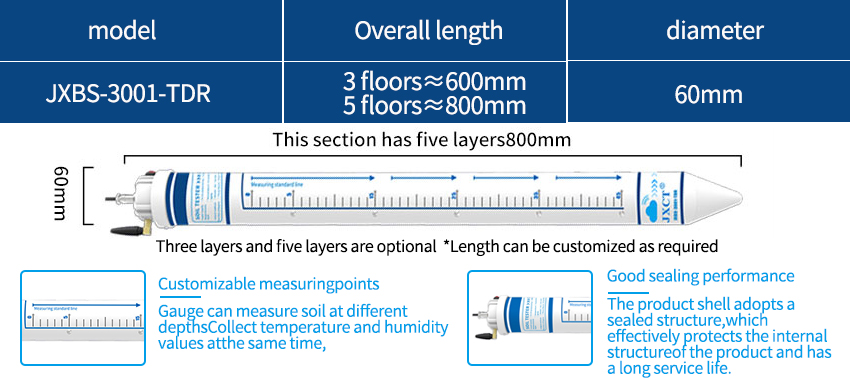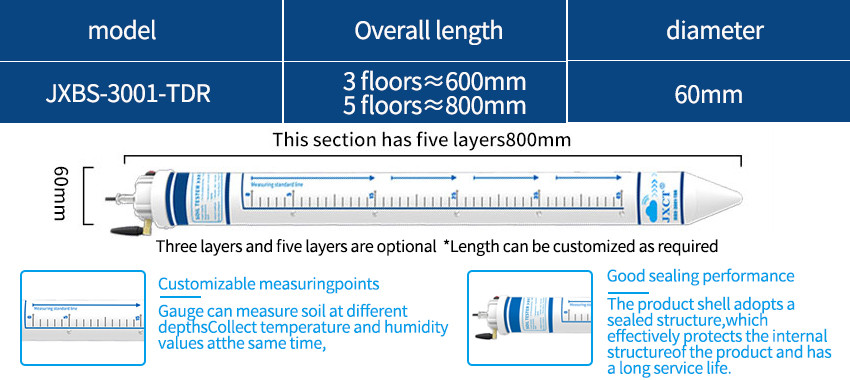Sustainable farming practices are becoming increasingly vital as the global population continues to grow, putting pressure on agricultural resources. One crucial tool that has revolutionized sustainable farming is soil sensors. These advanced devices provide valuable data about soil health and conditions, allowing farmers to make informed decisions and optimize their farming practices. In this article, we will explore how soil sensors shape sustainable farming practices and contribute to a more environmentally friendly and efficient agricultural sector.

Monitoring Soil Moisture Levels:
Water scarcity is a significant concern in agriculture, making efficient water usage a priority for sustainable farming. Soil sensors play a crucial role in monitoring soil moisture levels. By measuring moisture content at different depths, these sensors provide real-time data to farmers, enabling them to optimize irrigation practices. Instead of watering entire fields uniformly, farmers can target specific areas that require water, reducing water wastage and ensuring optimal water usage.
Precision Nutrient Management:
Proper nutrient management is essential for sustainable farming, as excessive or inadequate fertilization can lead to environmental pollution and reduced crop yields. Soil sensors help farmers monitor soil nutrient levels accurately. By measuring parameters such as nitrogen, phosphorus, and potassium, farmers can apply fertilizers precisely where they are needed. This targeted approach minimizes nutrient runoff, reduces fertilizer costs, and prevents the pollution of water bodies.
Optimizing pH Levels:
Soil pH plays a crucial role in plant growth and nutrient availability. Soil sensors allow farmers to monitor pH levels accurately in their fields. With this information, farmers can adjust soil pH using the appropriate amendments, such as lime or sulfur. By optimizing pH levels, farmers ensure that plants can access nutrients effectively, leading to healthier crops and improved yields. Additionally, maintaining proper pH levels helps prevent soil degradation and promotes long-term soil health.
Detecting Soil Compaction:
Soil compaction can negatively impact crop growth and productivity. Soil sensors can detect soil compaction by measuring soil density and compaction levels. By identifying areas with compaction issues, farmers can take corrective measures, such as deep tillage or using cover crops to improve soil structure. Addressing soil compaction enables better root development, enhances nutrient uptake, and improves water infiltration, ultimately contributing to sustainable farming practices.
Monitoring Soil Temperature:
Soil temperature affects various biological processes, including seed germination, root growth, and microbial activity. Soil sensors provide farmers with accurate soil temperature data, allowing them to make informed decisions about planting and other agronomic practices. By monitoring soil temperature, farmers can optimize planting times, regulate crop growth, and choose appropriate management practices, ultimately improving crop yields and resource utilization.
Early Detection of Diseases and Pests:
Timely detection and management of diseases and pests are essential for sustainable farming practices. Soil sensors can help identify early signs of diseases or pest infestations by monitoring soil conditions such as moisture content and nutrient imbalances. Changes in these parameters can indicate potential issues, allowing farmers to intervene promptly and prevent the spread of diseases or pests. Early detection reduces the need for excessive chemical treatments, minimizing environmental impacts.
Data-Driven Decision Making:
One of the key benefits of soil sensors is their ability to provide farmers with valuable data for making informed decisions. By continuously monitoring soil conditions and collecting data, farmers can analyze trends, identify patterns, and make data-driven decisions about their farming practices. This information helps optimize resource allocation, improve crop management, reduce input costs, and maximize yields. Data-driven decision-making is fundamental to sustainable farming practices, ensuring efficient resource utilization and environmental stewardship.
Promoting Precision Agriculture:
Soil sensors play a vital role in promoting precision agriculture, which aims to optimize farming practices on a site-specific basis. By providing accurate and real-time data, soil sensors enable farmers to adopt precision techniques such as variable rate fertilization and targeted irrigation. These practices minimize resource waste, improve efficiency, and reduce environmental impacts. Precision agriculture maximizes crop productivity while minimizing inputs, making it a cornerstone of sustainable farming practices.
Remote Monitoring and Automation:
Advancements in technology have made it possible to remotely monitor soil sensor data. Farmers can access real-time information






